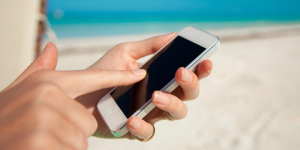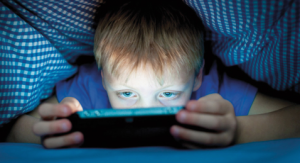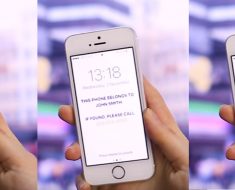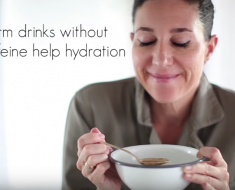How much do you know about cell phone radiation?
To be honest…I know nothing. But researchers are warning us, loud and clear, to take note and protect ourselves where we can. And for good reason.
Keep reading and considered yourself informed!
Back in 1996, the FCC (Federal Communications Commission) determined a legal and safe limit that our cell phones could and would emit radiation. And would you believe, 19 years later, that limit has not been revised?
How is that possible?
Look at how far our cell phone abilities have come? We text, talk, take photos, videos, on land and under water. We watch movies (and even in 3D), we surf the web, use GPS and listen to countless hours of music. So are we safe?
Maybe.
And what about our children? Are their ears, eyes and heads safe from the clearly higher levels of radiation that are being emitted?
Maybe not.
Given that we truly don’t know what we don’t know, I defer to the experts. Researchers (a lot smarter than me) have offered a few tips in giving ourselves the best possible opportunity to stay safe and healthy.
Take a look at this list…maybe there are 1 or 2 ways we can all help ourselves.
Here are 5 things you can do to protect yourself when using a cellphone:
1. Use a headset or a speaker.
Choose either wired or wireless. If you go wireless, make sure to take your headset out of your ear when you’re not on a call. Use your phone in speaker mode.
2. When in use, hold phone away from your body.
Why? The amount of radiation absorbed by your head and body decreases dramatically with even a small distance. Don’t put the phone in your pocket or clip it to your belt, even when using your headset.

MindBodyGreen
3. Text more, talk less.
Phones emit less radiation when sending text rather than voice communications.
4. Call when the signal is strong.
Fewer signal bars mean the phone must try harder to broadcast its signal. Research shows that radiation exposure increases dramatically when cell phone signals are weak.
5. Don’t store your phone in your pocket (or under your pillow).
When a phone is on and not in use, it still sends out an intermittent signal to connect with nearby cell phone towers, which means radiation exposure is still happening.
To learn more, visit the EWG’s FAQ on Cellphones, and the Executive Summary on Cellphones.
[interaction id=”5613feed74a791dd4b51703f”]























